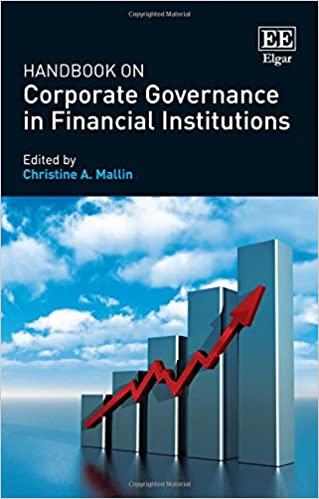Question
Suppose that the capital market is perfect and there are no taxes. Consider an all- equity firm with 1000 equity shares outstanding. The stock price
-
Suppose that the capital market is perfect and there are no taxes. Consider an all- equity firm with 1000 equity shares outstanding. The stock price is $10. Thus, the market value of equity is $10,000, which equals the market value of the firms assets.
The firm is considering changing its capital structure by issuing $5000 of par bond at 10% interest rate to buy back 500 equity shares.
Assume that there are four possible scenarios of economy/operating income: $500, $1000, $1500, $2000,
-
What is the effect of this change on the firm value?
-
What is the effect of this change on the risk of the firms equity?
-
What is the effect of this change on the risk of the firm?
-
What is the effect of this change on the firms cost of capital?
Assume an operating income of $1500,
-
What are the effects of this change on the firm value and on the expected return on equity
if there are corporate taxes and the tax rate is 35%?
-
Suppose that the debt is permanent (i.e., the company always keeps the same amount of
debt in the company), what is PV (tax shield)?
-
With taxes, will firm value change after the refinancing?
-
Suppose that TP=0.35, TPE=0.15, TC = 0.35, what is the effect of personal taxes on
interest tax shield?
-
Step by Step Solution
There are 3 Steps involved in it
Step: 1

Get Instant Access to Expert-Tailored Solutions
See step-by-step solutions with expert insights and AI powered tools for academic success
Step: 2

Step: 3

Ace Your Homework with AI
Get the answers you need in no time with our AI-driven, step-by-step assistance
Get Started


